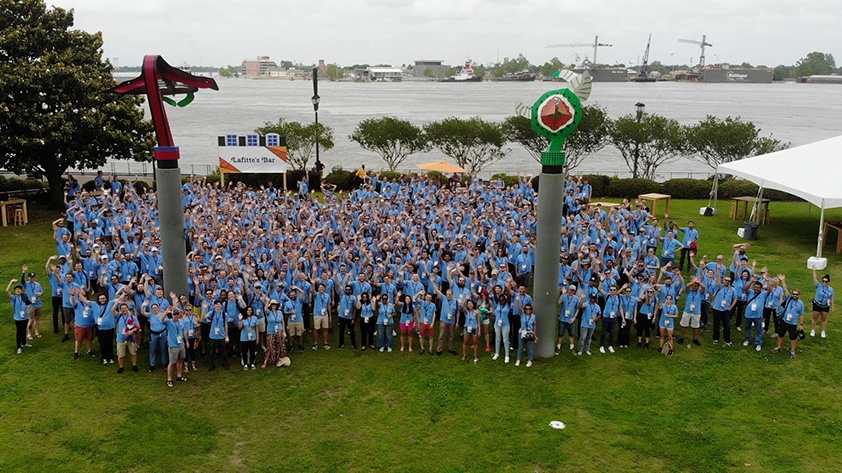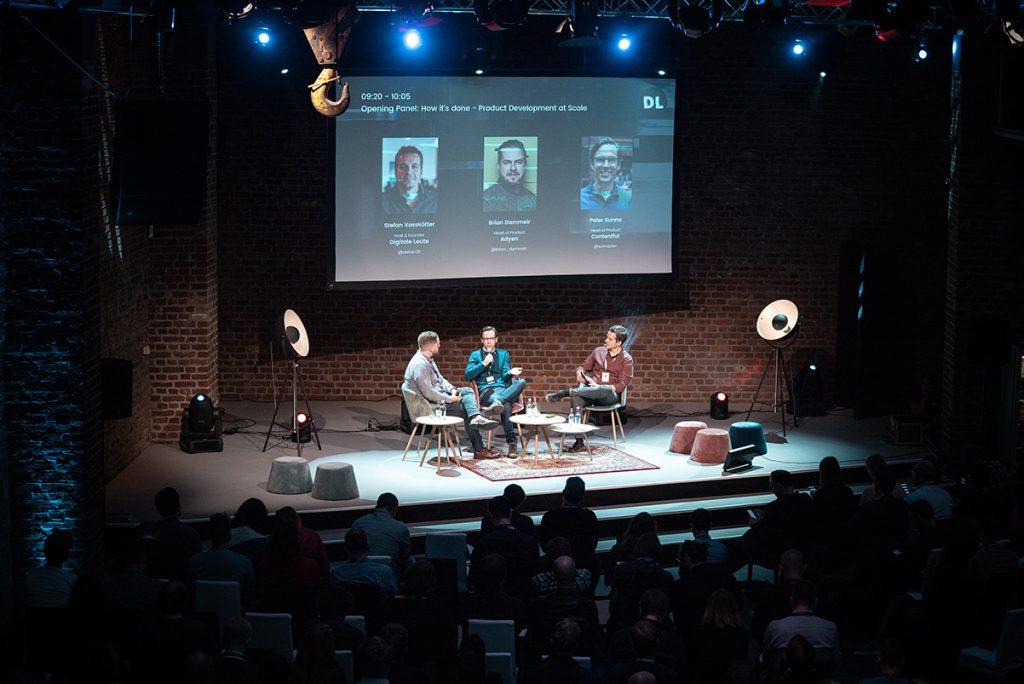Remote-Ready: Darren Murph from Gitlab explains why documentation is the backbone of a successful remote organization
18. Oktober 2019
In this article series, we feature successful remote-ready companies and ask them how they collaborate effectively in a remote environment.
More than 100,000 organizations, from startups to global enterprise organizations, use GitLab to deliver software at high velocity. GitLab is also fully remote and has been a trailblazer for efficient and productive remote organizations. We spoke with Darren Murph, Senior Manager and All-Remote Culture Curator at the DevOps platform about their best practices to collaborate over 50 different countries. Darrren also provided us with a plethora of links to GitLab’s own resources, that allow you to dive even deeper into the workflows of an organization with almost a thousand employees but no office.
- Here is what you will learn in this interview
- how aiming for the smallest viable reduces inefficiencies,
- how Github lives by the principle of handbook first,
- why most meetings are optional at Github.
How does your current organizational setup look like and in which units do you work remotely?
GitLab is all-remote. Every individual in the company, including the executive team, is fully remote. We have no company offices. We currently have over 900 team members in over 50 countries. GitLab is a very transparent company and many things that are normally confidential can be found in our handbook, including our company structure and organizational chart.
How does your collaboration practice look like on a day-to-day basis?
Collaboration is a core value at GitLab, and we are diligent about employing mechanisms that enable and streamline working across teams and time zones. We have a bias towards asynchronous communication, in which our default action is to collaborate on work within GitLab Issues and Merge Requests rather than Slack, email, or meetings. This allows anyone to see the full history of collaboration whenever they choose and minimizes inconvenience for people who are in different time zones. As an all-remote company, we do not look to a meeting by default, and we strive to make meetings optional.
Some meetings are unavoidable. When we must have a meeting, we are diligent about documentation. Each meeting must have an agenda, and notes must be captured in Google Docs during the meeting. This ensures that information generated in the meeting is immediately available for dissemination for key parties who could not attend live. You can read more about our meeting practices here.

Do you have any key paradigms or must-haves for organizing your remote work collaboration?
Documentation is essential. At GitLab, we strive to live handbook first. In other words, we document a change or an iteration in our handbook, and then we share outward. This creates a continual cycle of capturing and organizing knowledge, such that new hires can more easily search for and find answers without having to ask an individual.
It’s vital that colleagues live the value of iteration.
We aim to ship the smallest viable change, rather than getting caught up in inefficiencies inherent with project planning. Small iterations require less input and consensus and can be reverted or redirected easily without catastrophic consequences.
Which are the most important tools for your remote collaboration?
GitLab Issues and GitLab Merge Requests are essential. We use our own product to manage tasks and collaborate across the globe.
We also rely heavily on Zoom (for video calling), Google Docs (for notetaking), and Slack (for company correspondence).
It’s not enough to have a solid list of tools.
What enables us to be productive with these tools is the underlying autonomy, trust, and empowerment that permeates the culture.
How do you reflect the remote work specifics in your approach to leadership, coaching and mentoring?
GitLab’s values are truly lived. It’s common to hear our CEO reference values during meetings and company calls, as well as to outside media and investors. I’ve also created a dedicated page for describing how learning and development work within GitLab.
Which key skills are important to work effectively in your remote work organization?
A shared belief in the values, being a true manager of one, and impeccable communication skills.
It’s important to highlight that these are also necessary to work effectively in a colocated work environment. Driven, responsible, empathetic people are ideal colleagues in any setting. In an all-remote setting, however, they typically perform with even greater velocity due to the freedoms and flexibility that they enjoy.
Which tips can you share to have fun working remotely?
In an all-remote setting, leadership must be intentional about informal communication. At GitLab, I’ve created a page dedicated to describing how we do this in hopes of inspiring other remote companies.
We encourage coffee chats, group social calls, and participation in an array of themed Slack channels. These create micro-communities based on geography, hobbies, and passions. There are even dedicated language channels where non-native speakers are encouraged to join in order to learn.
We have a Visiting Grant, which partially reimburses travel for a GitLabber to travel and visit another team member. You can read a blog post here to see just how remarkable this perk is when maximized.
Do you believe in the future of remote work as we do? Then head over to www.dl-remote.com, our talent platform for remote employees.



